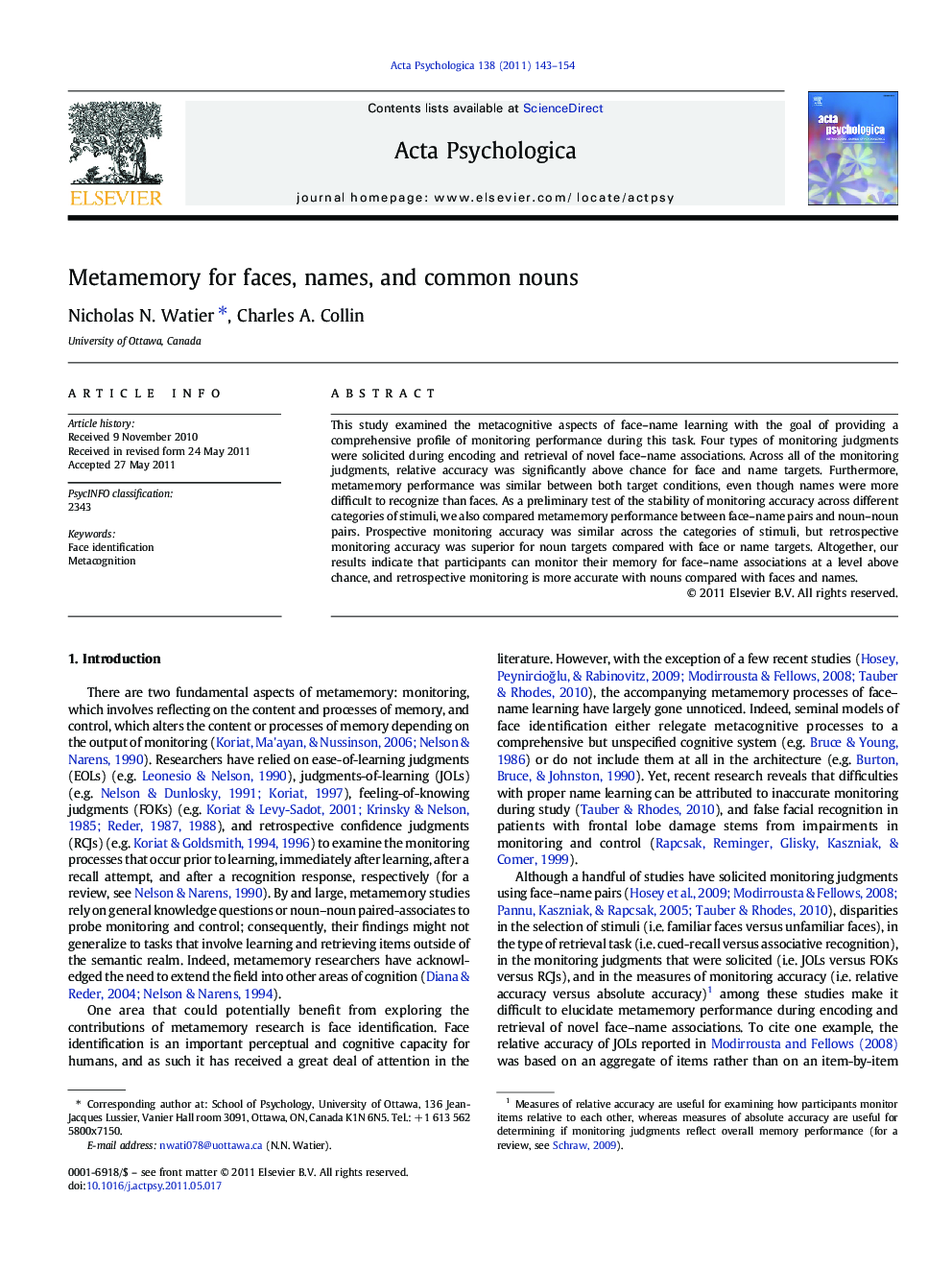| Article ID | Journal | Published Year | Pages | File Type |
|---|---|---|---|---|
| 920182 | Acta Psychologica | 2011 | 12 Pages |
This study examined the metacognitive aspects of face–name learning with the goal of providing a comprehensive profile of monitoring performance during this task. Four types of monitoring judgments were solicited during encoding and retrieval of novel face–name associations. Across all of the monitoring judgments, relative accuracy was significantly above chance for face and name targets. Furthermore, metamemory performance was similar between both target conditions, even though names were more difficult to recognize than faces. As a preliminary test of the stability of monitoring accuracy across different categories of stimuli, we also compared metamemory performance between face–name pairs and noun–noun pairs. Prospective monitoring accuracy was similar across the categories of stimuli, but retrospective monitoring accuracy was superior for noun targets compared with face or name targets. Altogether, our results indicate that participants can monitor their memory for face–name associations at a level above chance, and retrospective monitoring is more accurate with nouns compared with faces and names.
Research highlights► We examine metamemory performance for face–name and noun–noun associations. ► Individuals can monitor their memory for faces and names at a level above chance. ► The delayed-JOL effect is reproduced with face–name associations. ► Retrospective metamemory is more accurate for nouns compared with faces or names.
